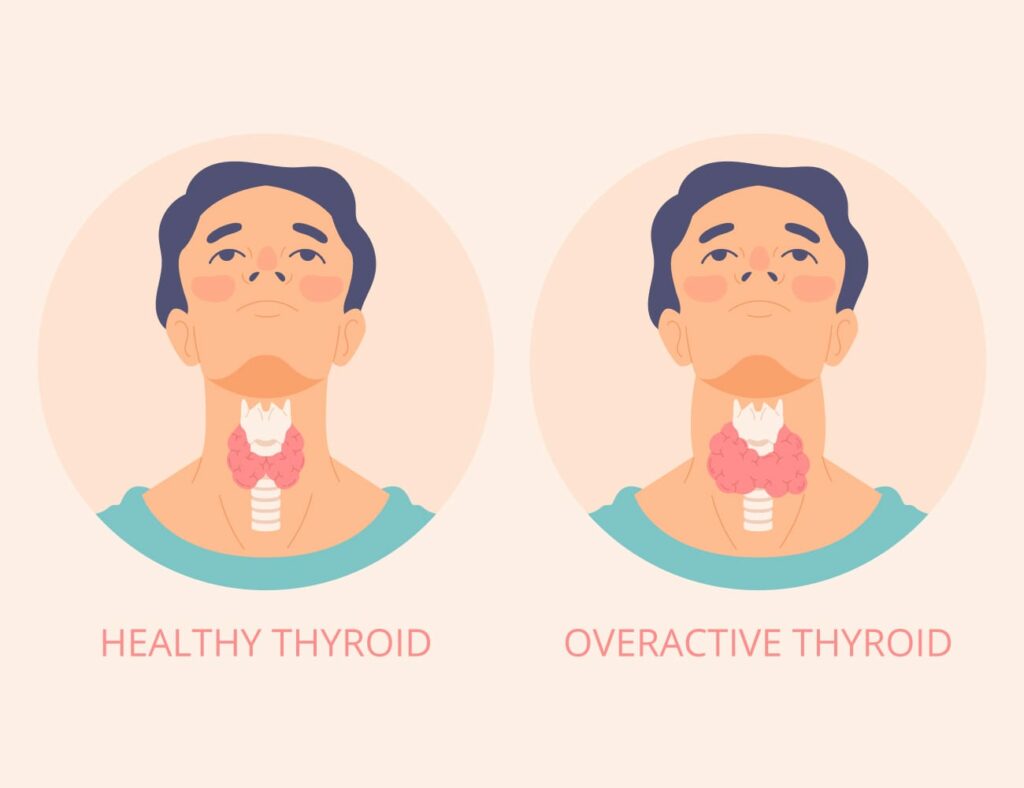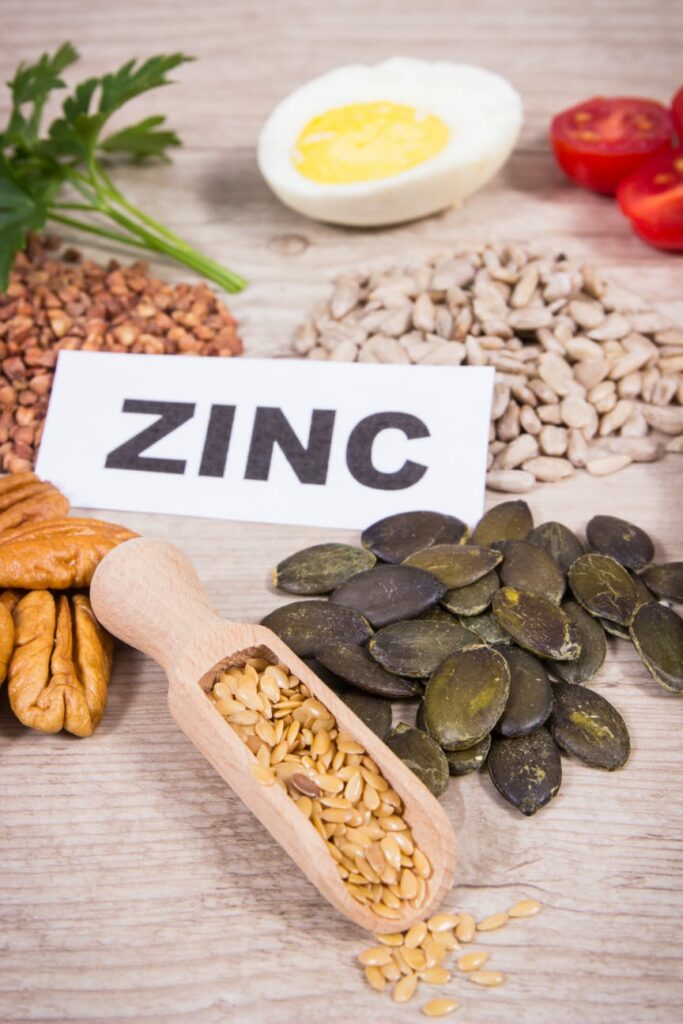Thyroid diseases, encompassing conditions like hypothyroidism, hyperthyroidism, Hashimoto’s thyroiditis, and Graves’ disease, affect millions globally. These conditions significantly impact metabolic rate, energy levels, and overall health. Nutrition plays a pivotal role in managing thyroid disorders, and understanding the right dietary approach can help alleviate symptoms, improve quality of life, and even support medical treatment.

Understanding Thyroid Function
The thyroid gland, a butterfly-shaped organ located at the base of the neck, produces hormones like thyroxine (T4) and triiodothyronine (T3), which regulate metabolism, heart rate, and body temperature. The production and release of these hormones are controlled by the hypothalamus and pituitary gland through the thyroid-stimulating hormone (TSH).
In hypothyroidism, the thyroid gland produces insufficient hormones, leading to symptoms like fatigue, weight gain, and depression. Conversely, hyperthyroidism results from excess hormone production, causing symptoms like weight loss, anxiety, and heart palpitations.
Nutritional Principles for Thyroid Diseases
1. Iodine: The Essential Micronutrient
Iodine is crucial for the synthesis of thyroid hormones. While iodine deficiency can lead to hypothyroidism, excessive intake may trigger or worsen hyperthyroidism. It’s important to consume iodine in moderation through iodized salt, dairy products, and seafood. For individuals with Hashimoto’s thyroiditis or Graves’ disease, a diet too high in iodine might exacerbate symptoms, so it’s vital to consult with a healthcare provider before making dietary changes.
Research Insight: A study published in Thyroid found that populations in areas with excessive iodine intake had higher rates of thyroid dysfunction, highlighting the importance of balanced iodine consumption (Zimmermann, 2009).
2. Selenium: Supporting Thyroid Function
Selenium plays a vital role in converting T4 into the more active T3 hormone. It also has antioxidant properties that protect the thyroid gland from damage. Selenium deficiency is linked with increased risk of thyroid dysfunction. Foods rich in selenium include Brazil nuts, sunflower seeds, and fish.
Research Insight: A clinical trial published in the *Journal of Clinical Endocrinology & Metabolism* demonstrated that selenium supplementation could reduce thyroid antibodies in patients with Hashimoto’s thyroiditis, potentially slowing disease progression (Drutel, Archambeaud, & Caron, 2013).
3. Zinc: Crucial for Hormone Synthesis
Zinc is essential for the synthesis of thyroid hormones and supports the immune system. Its deficiency can impair thyroid function, leading to symptoms of hypothyroidism. Foods high in zinc, such as meat, shellfish, legumes, and seeds, should be incorporated into the diet.

Research Insight: A study in Nutrients found that zinc supplementation improved thyroid function in women with hypothyroidism (Garg, 2015).
4. Iron: Facilitating Hormone Production
Iron deficiency can lead to hypothyroidism by impairing the thyroid’s ability to produce hormones. This is particularly common in women of reproductive age. Including iron-rich foods such as red meat, leafy greens, and legumes can help maintain adequate thyroid function.
Research Insight: The American Journal of Clinical Nutrition reported that women with iron deficiency were more likely to develop hypothyroidism, emphasizing the importance of maintaining adequate iron levels (Zimmermann, 2007).
5. Avoiding Goitrogens
Goitrogens are compounds that can interfere with thyroid hormone production by inhibiting iodine uptake. They are found in cruciferous vegetables like broccoli, cauliflower, and cabbage, as well as soy products. Cooking these foods can reduce their goitrogenic activity. While these vegetables offer numerous health benefits, individuals with hypothyroidism should consume them in moderation and ideally cooked.

Research Insight: A study in Nutrients highlighted that while goitrogens can affect thyroid function, their impact is generally minimal unless consumed in large quantities, and they should not be avoided altogether (Li, 2013).
6. Vitamin D: Immune System Modulation
Vitamin D is crucial for immune regulation and has been linked to thyroid health. Deficiency in vitamin D is common in individuals with autoimmune thyroid diseases like Hashimoto’s and Graves’ disease. Adequate sunlight exposure and consumption of vitamin D-rich foods like fatty fish, eggs, and fortified products are recommended.
Research Insight: A study published in the *International Journal of Endocrinology* found that vitamin D supplementation improved the immune response in patients with Hashimoto’s thyroiditis (Kivity et al., 2011).
Dietary Recommendations for Specific Thyroid Diseases
1. Hypothyroidism
– Focus on Fiber: Constipation is a common symptom of hypothyroidism. A diet high in fiber, including whole grains, fruits, and vegetables, can help improve digestion.
– Balance Carbohydrates: Opt for complex carbohydrates and avoid simple sugars, which can exacerbate weight gain and fatigue.
– Moderate Caloric Intake: Since metabolism slows down in hypothyroidism, monitoring caloric intake is crucial to prevent weight gain.
2. Hyperthyroidism
– Increase Caloric Intake: Due to an elevated metabolism, individuals with hyperthyroidism may need to consume more calories to maintain weight.
– Focus on Calcium and Vitamin D: Hyperthyroidism can lead to bone density loss. Foods rich in calcium and vitamin D, like dairy and leafy greens, are essential to support bone health.
– Limit Caffeine: Caffeine can worsen symptoms like anxiety and heart palpitations, so it’s best to reduce intake.
3. Hashimoto’s Thyroiditis
– Adopt an Anti-inflammatory Diet: Chronic inflammation is a hallmark of Hashimoto’s. Foods rich in omega-3 fatty acids, like fish and flaxseeds, and antioxidants from fruits and vegetables can help reduce inflammation.
– Consider Gluten-Free: Some studies suggest a link between gluten sensitivity and Hashimoto’s. A gluten-free diet may reduce thyroid antibodies and improve symptoms in some individuals.
4. Graves’ Disease
– Focus on Foods that Calm the Immune System: An overactive immune system drives Graves’ disease. Incorporating anti-inflammatory foods and reducing stress through a balanced diet can help manage the condition.
-Avoid Excess Iodine: Given the hyperactivity of the thyroid, it’s essential to avoid iodine-rich foods and supplements unless advised by a healthcare professional.
Conclusion
Proper nutrition is a cornerstone of thyroid disease management. By understanding the role of key nutrients and tailoring the diet to individual needs, patients can significantly improve their thyroid health and overall well-being. As with any medical condition, it’s essential to work closely with a healthcare provider to develop a comprehensive treatment plan that includes both medical and nutritional strategies.
For those managing thyroid conditions, adopting a balanced diet that supports thyroid function, mitigates symptoms, and addresses individual needs is crucial. Incorporating these nutritional principles into daily life can lead to better health outcomes and an improved quality of life.



